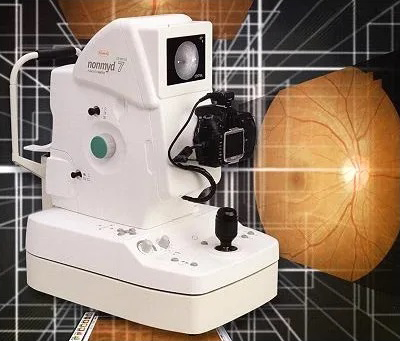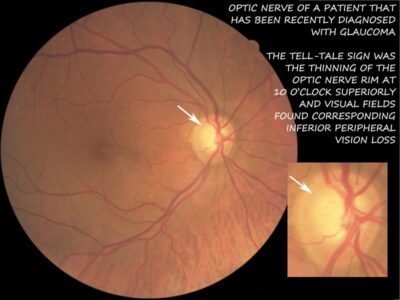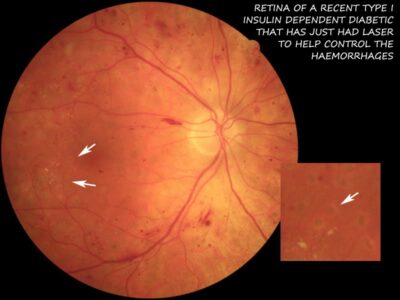Digital Retinal Photography
Included in our bulk billed comprehensive eye tests, our optometrists will take a digital photograph of the back of your eye using our state-of-the-art retinal camera. This allows us to instantly diagnose a number of common conditions.
Further more, this image will be stored on our computer – so we can monitor for changes to the condition of your retina with every eye test you take. This gives you an invaluable ongoing record of the health and condition of your eyes.

Digital Retinal Photography Allows Us To Assess And Monitor Conditions Including:
Glaucoma
Glaucoma damages the optic nerve at the point where it leaves the eye. Recent statistics suggest that some form of glaucoma affects around 2 in every 100 people over the age of 40. the danger with chronic glaucoma is that there is no pain and your eyesight will seem to be unchanged, but your vision is being damaged. Digital retinal photography allows us to assess your optic nerve for glaucomatous damage, and because of this we can also analyse changes over time.
Diabetes
Diabetic retinopathy is a major cause of visual impairment among adults. In Australia more than 1 million people have been identified as having diabetes, with early detection greatly improving the success rate of treatment. Digital retinal photography allows us to assess your retinal vasculature for diabetic retinopathy quickly and easily. Our Kowa NonMyd 7 camera also allows us to capture peripheral vasculature using a widefield montage.
Cataracts
A cataract is a cloudy area in the lens of the eye that leads to a decrease in vision. Cataracts often develop slowly and can affect one or both eyes. Symptoms may include faded colours, blurry or double vision, halos around light, trouble with bright lights, and trouble seeing at night. This may result in trouble driving, reading, or recognizing faces. Early on the symptoms may be improved with glasses. If this does not help, surgery to remove the cloudy lens and replace it with an artificial lens is required.
Age Related Macula Degeneration
Macular degeneration causes the gradual breakdown of the central (macular) retinal nerves. Because of this risk increases with age. Further more it is the most common cause of vision loss in individuals over the age of 50.



